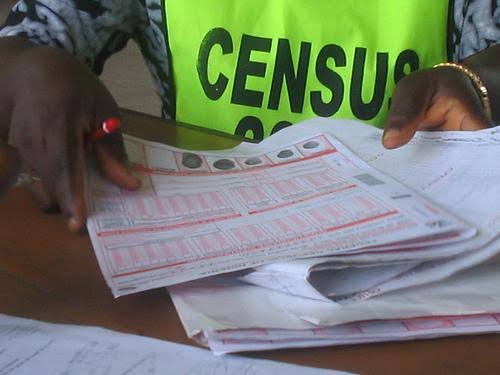
Census on Hold: N200 Billion Spent, New Date Uncertain After Delay

Following the postponement of the 2023 population and housing census by former President Muhammadu Buhari, West Africa Weekly provides comprehensive coverage of the developments surrounding this critical national undertaking.
In a press statement signed by former Minister of Information and Culture, Lai Mohammed,
It was revealed that the postponement was approved following a meeting between President Buhari, the Chairman of the National Population Commission (NPC), Nasir Isa-Kwarra, and other key members of the Federal Executive Council (FEC) at the Presidential Villa, Abuja.
Initially slated for May 3-7, 2023, the census was postponed indefinitely, with conflicting reports emerging regarding the required budget. While the NPC declared a need for N532.7 billion, former Minister of State for Budget and National Planning, Clem Agba indicated a total requirement of N869 billion, with a portion expected to be sourced from the private sector.
Despite the suspension, the NPC disclosed having spent N200 billion on planning and mid-execution activities for the census. This expenditure has come under scrutiny, prompting a Federal High Court in Abuja to order the NPC to disclose details within seven days.
In defence of the expenditure, the former Director of Public Affairs at the NPC, Dr Isiaka Yahaya, emphasised the commission’s commitment to conducting a digital census, necessitating significant investments in technology infrastructure and logistical support. This included the procurement of computers, software, vehicles, and solar power systems, as well as the acquisition of 810,000 personal digital assistant devices.
The House of Representatives has announced plans to probe the N200 billion expenditure on the suspended census, while urging the Federal Government to complete the preparation process, which is reportedly at 80%.
Looking ahead, the NPC has requested N693.3 million in the 2024 budget to conduct the postponed census, with indications suggesting a potential rescheduling for November 2024. Stakeholders, including development economists and demography experts, emphasise the importance of conducting the census for effective economic planning and resource allocation.
While challenges remain, there is consensus on the necessity of conducting the census without further delay, highlighting its crucial role in informing government policies and development initiatives.
Read: House of Reps Calls for Suspension of Electricity Tariff Hike
About The Author
Related Articles
MultiChoice Pumps GH¢200 Million Into Ghana’s Creative Industry
MultiChoice Ghana has invested more than GH¢200 million into the country’s creative...
ByWest Africa WeeklyMarch 5, 2026FIFA Confirms DR Congo Playoff Spot, Ending Nigeria’s World Cup Dream
Nigeria’s hopes of qualifying for the 2026 FIFA World Cup have come...
ByWest Africa WeeklyMarch 5, 2026Ghanaians to Travel to St Kitts and Nevis Without Visa
Ghanaian citizens will soon be able to travel to the Caribbean nation...
ByWest Africa WeeklyMarch 5, 2026Ghana Records Sharp Drop in Inflation, Lowest Since 2021
Ghana’s inflation rate dropped to 3.3 percent in February 2026, marking the...
ByWest Africa WeeklyMarch 5, 2026










